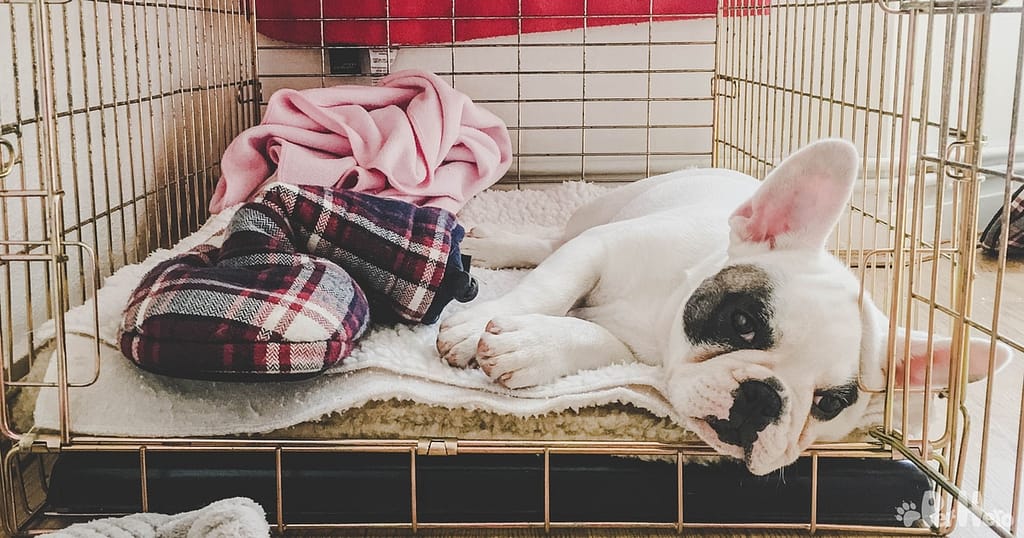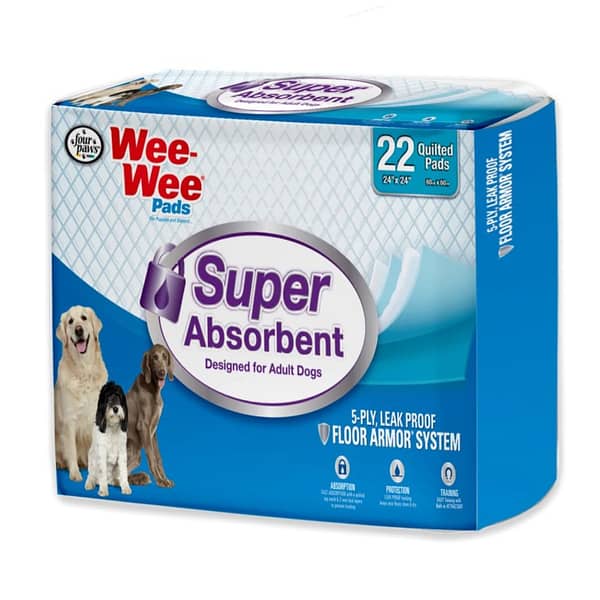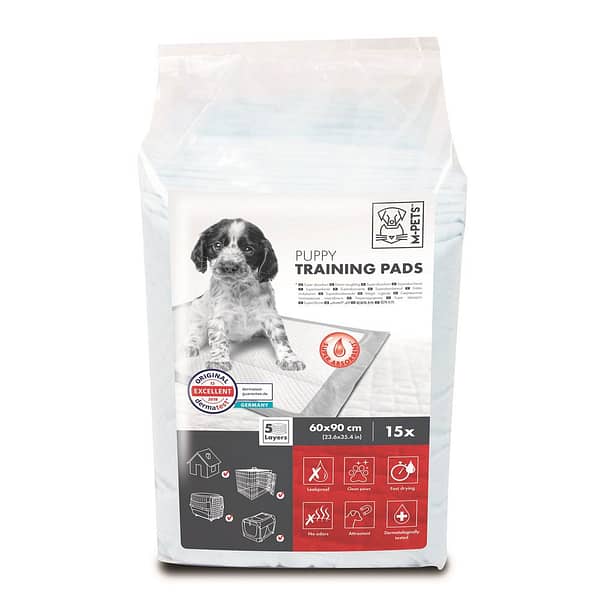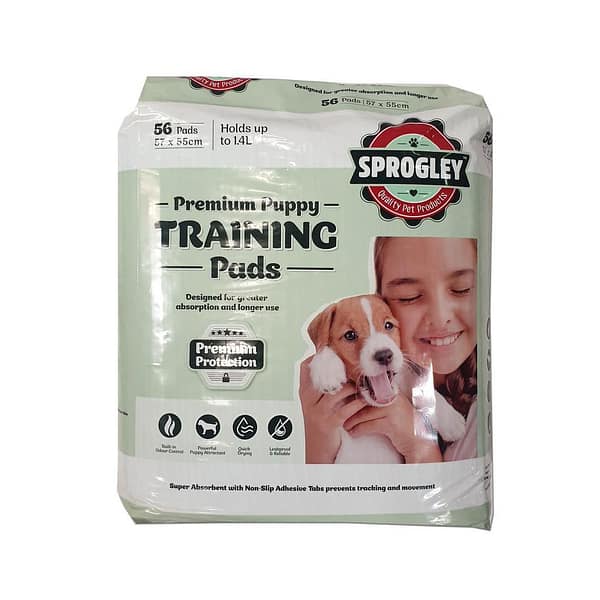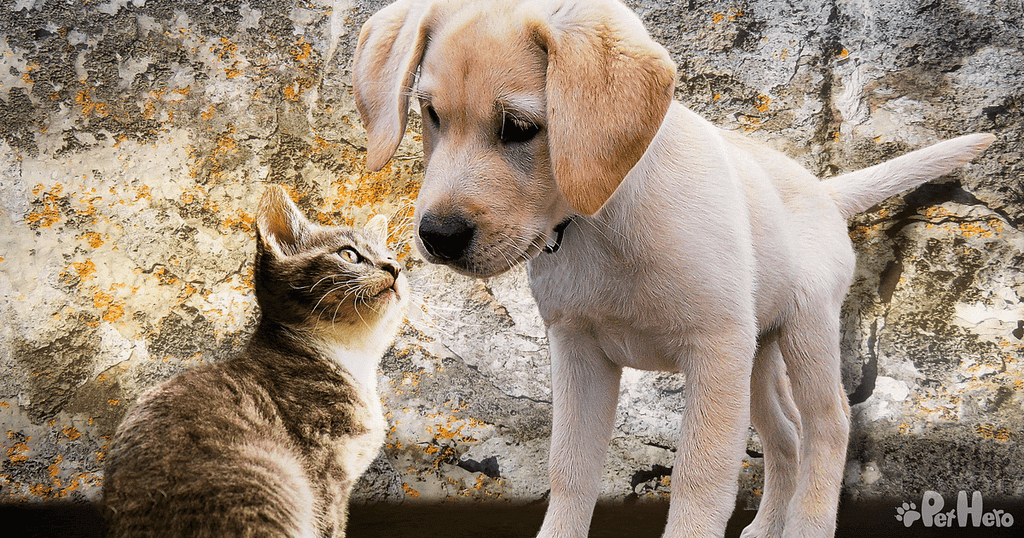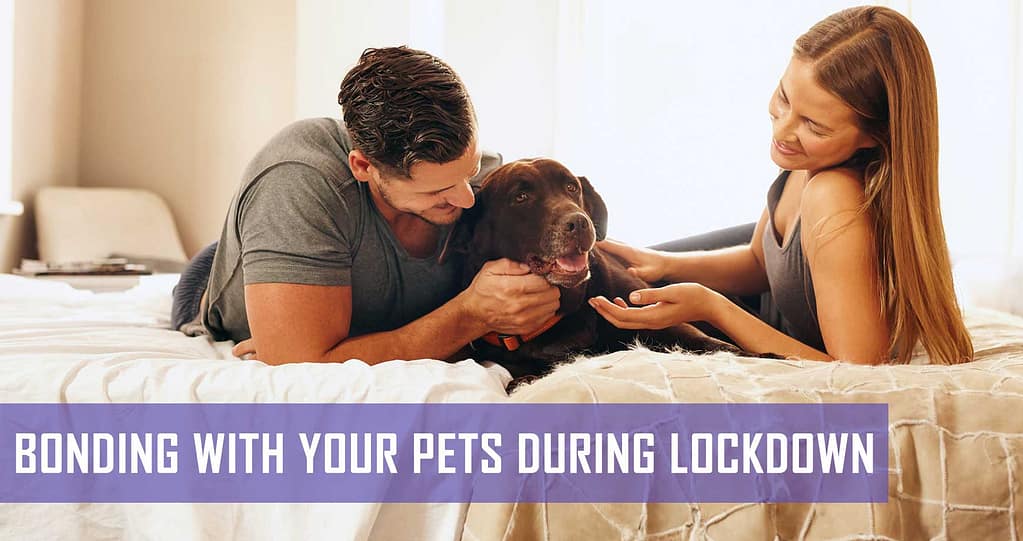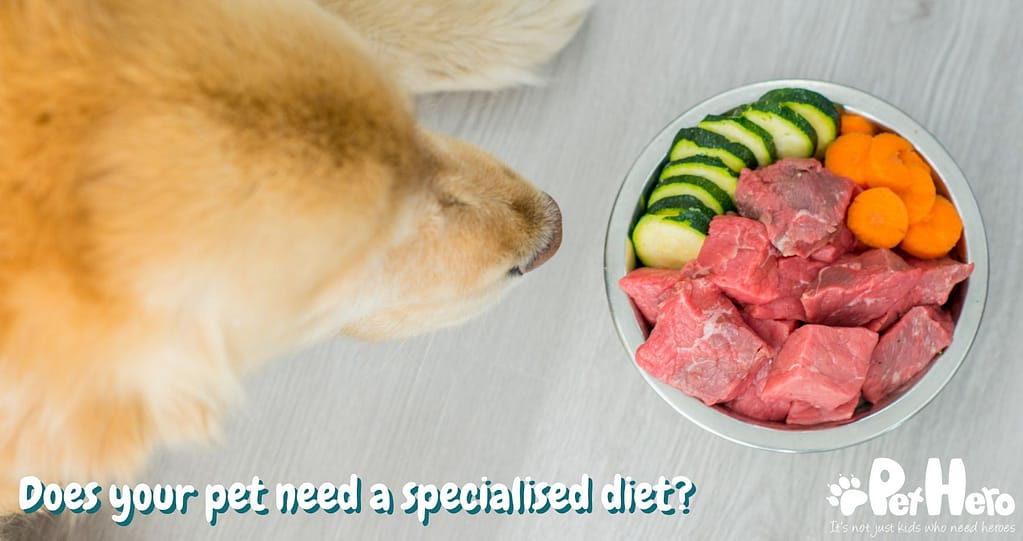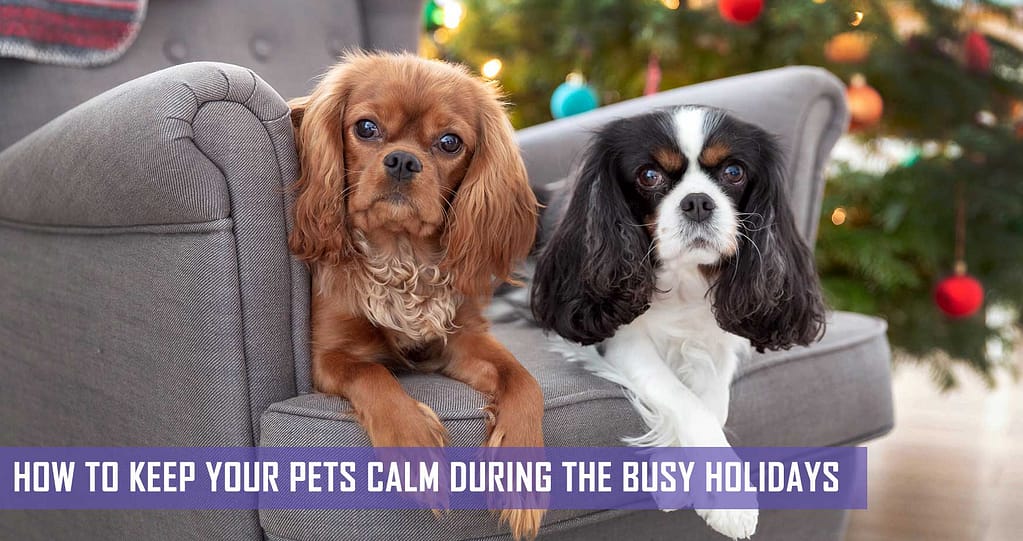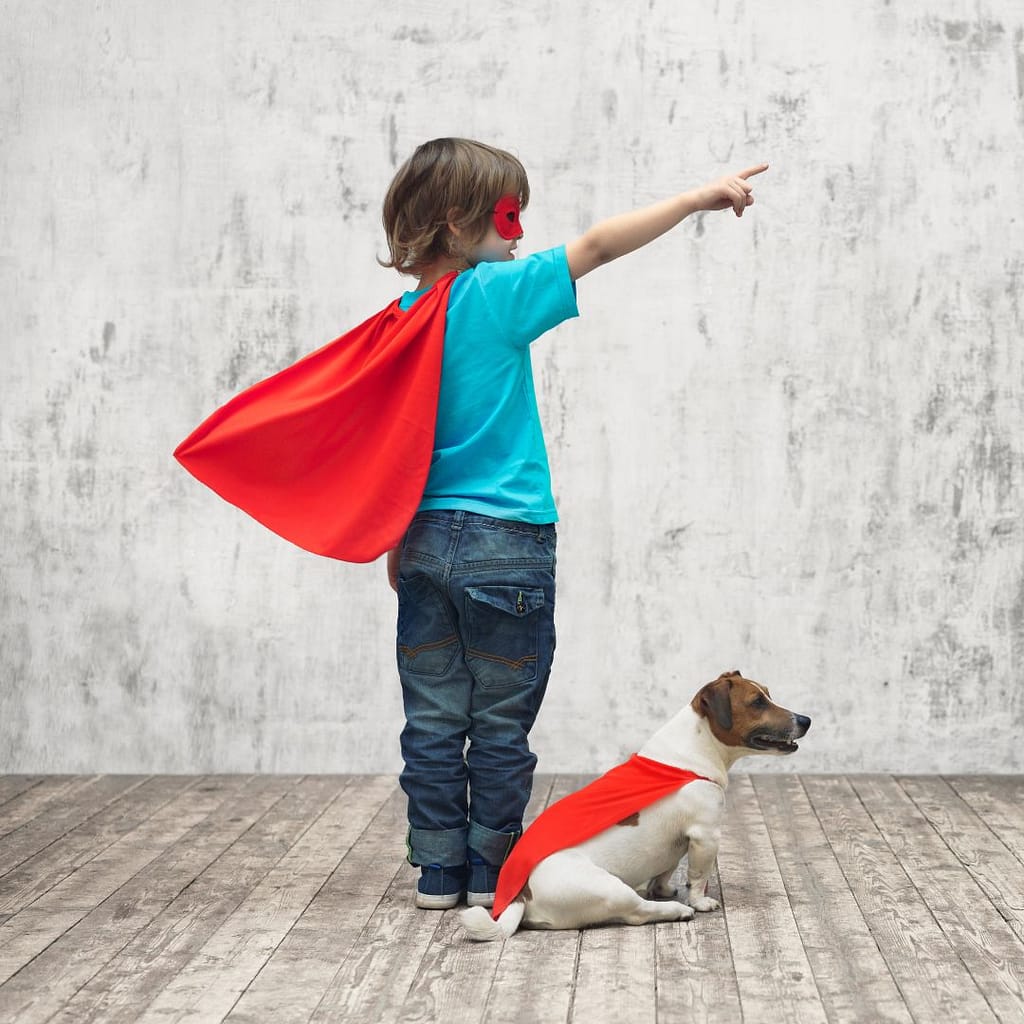One of the most crucial steps to take in puppy pawrenthood is to tackle house-training as soon as possible. A house-trained puppy is a healthy puppy – and one who is ready for obedience training next. Plus, your floors will remain clean as you learn how to read your puppy’s signals.
At what age should a puppy be potty trained?
It needs to be said: ‘potty’ training is a bit of a misnomer when it comes to puppies – there is no actual potty involved! What ‘potty training’ a new puppy refers to is house-training: that ah-ha moment when your puppy realises it’s better for them and for you if they pee and poop outside instead of on the kitchen floor or on the bedroom carpets. A new puppy can start their house-training as soon as you bring them home. So, from the age of eight weeks old or older, you can start house-training your new puppy and – depending on the breed, their level of trainability, and your consistency – you can successfully house-train your puppy in anything from a few weeks to a few months.
Is crate training the same as house-training?
Crate training a puppy involves teaching your new puppy that a crate or cage is a safe and secure space for them in which to feel comfortable and relaxed. In times when confinement is necessary – such as taking a trip to the vet or travelling long-distance in the car or on a plane – your puppy or dog will experience their crate as safe and familiar in unfamiliar surroundings. And, even better, is that yours will be the face they see first when you let them out of the crate.
Crate training works as just one tool in the process of house-training your puppy because no puppy likes to sleep and eat where they’ve just peed or pooped. When confined to a crate, your puppy will be encouraged to hold their bladder and bowels, so when you let them out of the crate, they will most likely want to ‘go’ as soon as possible. You can take them outside immediately and then praise them enthusiastically for going on the lawn instead of on your carpets!
But, take note
- Never crate your puppy for more than 2 – 3 hours at a time!
- Never crate your puppy as punishment – this associates the crate with a negative experience.
- Don’t place a puppy pad inside the crate… that just defeats the purpose.
- Make the crate a fun and happy place for your puppy by putting their favourite toys inside and making it as comfortable as possible.
- Position the crate in an area where your puppy is ‘part of the conversation’ even if they’re enclosed inside the crate.
- Leave the crate door open. When your puppy chooses to lie in the open crate, give them a treat to reward this desirable behaviour.
- Gradually close the crate door for longer and longer periods, rewarding your pup each time they lie quietly in the crate.
- Be patient – crate training with positive reinforcement can take a long time, but will be worth it when your puppy has a lifelong positive association with crating… and doesn’t pee in the house.
How long does it take to house-train a new puppy?
The amount of time it takes to house-train a new puppy depends on a few things:
The breed of dog
More intelligent, independent dogs take a shorter time – as a rule – to house-train than less intelligent dogs. However, the success of house-training involves equal input from both owner and puppy. There may be exceptions to this rule, but small- and miniature-breed dogs generally take longer to house-train, although this may be because of ‘small dog bias’ – we are more forgiving of tiny puddles and poops. Also, smaller dogs need to be taken outside more frequently, so when we miss their cues, we don’t always give them the opportunity to be rewarded for ‘going’ outside, thus the training takes longer.
Consistency of training
When you set out to house-train your puppy, BE CONSISTENT. Commit to taking them outside first thing in the morning, after every meal, after playtime and snacks, and – while they are still very young – at least once during the course of the night. This will help to train them to ‘hold it’, while still giving them ample opportunity to have the ‘freedom to pee’. The power of routine also builds their trust in you and strengthens their self-confidence.
Reward, reward, reward
Don’t mix signals with your new puppy. They are trying their best, so when they get it right, reward and praise them enthusiastically for ‘going’ outside. If you find an accident in the house, simply quietly clean it up. It doesn’t make your puppy ‘bad’, so never ever punish them for doing something that is natural to them. If you missed their cue, it’s not their fault.
If you consistently take your new puppy outside and praise them for doing their business in the appropriate place, they will quickly learn to not pee or poop inside. House-training will be as easy and efficient as you make it, so if you get this right, you can expect to have a fully house-trained puppy within a few months.
Can you use puppy pads to house-train your puppy?
The short answer is ‘yes, but…’. The long answer can be found in this article, where we explain the process of house-training and that puppy pads merely facilitate the house-training process and create less mess for you to clean up. Choose from the best puppy pads here:
And remember that puppy treats and puppy pads go hand-in-paw to make your puppy training experience as effective and rewarding as possible.
What happens if you don’t crate train a puppy?
Crate training is an effective way of getting your new puppy to hold their bladder, but they can still be house-trained without crate training. You can still give your new puppy a warm and comfortable bed to sleep in, take them outside enough times during the day and at night, and treat and reward their desired behaviour. You have to keep your eyes on your puppy at all times (not difficult – just look how cute he is!) and be consistent with what you ask of him and how you reward his good behaviour.
Sign up for the Pet Hero newsletter to receive useful pet pawrenting information delivered directly to your inbox. It’s our goal to make pet heroes out of humans and pets alike – it’s also our goal to give you first access to our competitions, sales and promotions, so sign up today!

